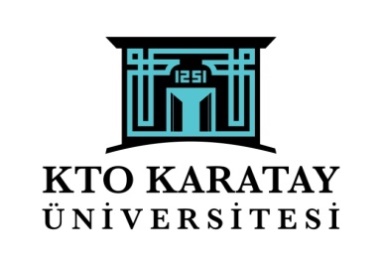08-ord-217 page 11 08-ord-217 october 7, 2008 in re: the state journal/cabinet for economic development summary:
08-ORD-217
Page 11
08-ORD-217
October 7, 2008
In re: The State Journal/Cabinet for Economic Development
Summary: Cabinet for Economic Development properly relied on KRS
61.878(1)(i) and (j) and Courier-Journal and Louisville Times Co. v.
Jones in denying request for e-mails related to the itinerary and
schedule of Governor’s economic development trip to Japan. Having
reviewed the disputed records, Attorney General concludes a small
category of e-mails are not properly characterized as drafts and notes
and do not qualify for exclusion under the cited exemptions.
Open Records Decision
The question presented in this appeal is whether the Cabinet for
Economic Development violated the Open Records Act in partially
denying State Journal staff writer Paul Glasser’s request for e-mails
related to Governor Steve Beshear’s economic development trip to Japan
in June 2008. For the reasons that follow, we conclude that the
Cabinet for Economic Development properly denied the request for
copies of the e-mails related to the Governor’s itineraries under
authority of KRS 61.878(1)(i) and (j) and Courier-Journal and
Louisville Times Co. v. Jones, 895 S.W.2d 6 (Ky. App. 1995),
hereinafter “Courier-Journal v. Jones.” We further find that a small
category of e-mails are not properly characterized as drafts and notes
and do not qualify for exclusion under the cited exemptions.
On June 18, 2008, Mr. Glasser submitted an open records request to the
Cabinet requesting copies of the following records:
… I am requesting copies of any and all records, including but not
limited to receipts and vouchers, held by the Cabinet for Economic
Development related to the expenses and itinerary for Gov. Steve
Beshear’s economic development trip to Japan in June 2008. Expenses
include, but are not limited to, hotels, limousines, taxis, airfare,
entertainment, sightseeing, tips and gratuities for each member of the
delegation and spouses, if applicable.
I am also requesting copies of e-mails, notes or letters and other
correspondence between and/or among the Cabinet for Economic
Development and the Kentucky Far East Trade Office in Tokyo, Japan
concerning, mentioning or related to the June 2008 economic
development trip to Japan.
I am also requesting copies of any and all records for operating
expenses and salaries of the staff of the Kentucky Far East Trade
Office in Tokyo, Japan.
On June 18, 2008, Catherine C. Staib, Assistant General Counsel,
responded to Mr. Glasser’s request on behalf of the Cabinet, advising:
We will not have documentation regarding the expenses for individuals
from our Cabinet until travel vouchers are filed. At that time, I will
forward all the vouchers and supporting documentation to you for
members of CED who participated. If the expenses of other members of
the delegation are processed through the Cabinet, I will also furnish
that information to you. Otherwise you will need to contact the
Governor’s Office and the State Police for that information.
The Far East Office operates on a personal service contract from which
expenses and salaries are taken. I will be happy to provide the
contract to you, as well as any supporting documentation. But I will
need to know the time frame for your request.
In subsequent correspondence, Ms. Staib advised Mr. Glasser that the
e-mails were coming in to her and there were around 300 e-mails, most
of which were preliminary internal memoranda planning the trip, and
would be exempt from production, but that she read them all and
determined which were exempt and not exempt and would provide him with
a formal response, including the specific exemption references for
exempt material. She further asked him if it was possible to narrow
his request.
In response, Mr. Glasser narrowed his request, but later renewed his
request for copies of all the e-mails, which were not exempt.
By letter dated July 23, 2008, Ms. Staib provided Mr. Glasser with a
response to his request, advising:
This letter is written in response to your open records request to the
Cabinet for Economic Development. Specifically, you renewed your
request for all e-mail related to the Governor’s Far East trip,
without limitation.
I have again reviewed all e-mail from/to this Cabinet related to the
trip. Enclosed you will find documents that were not exempted under
the Kentucky Open Records Act. The remaining documents were
preliminary in nature, trip planning, and staff memos containing
opinions. These documents (e-mail and e-mail attachments) are exempt
from production under KRS 61.878(1)(i) and (j), which exempt
preliminary documents, drafts, and staff memos expressing opinions and
correspondence, are not notice of final agency action. See also,
Courier-Journal v. Jones, 895 S.W.2d 6 (Ky. App. 1995).
Shortly thereafter, Mr. Glasser initiated the instant appeal
contending that the Cabinet’s justification was insufficient to block
the release of almost the entire collection.
After receipt of notification of the appeal, Ms. Staib provided this
office with a response to the issues raised in the appeal. In her
response, she provided the following background:
June 8 – 14, Governor Steve Beshear and a group of state officials,
including three officials from the Cabinet of Economic Development,
traveled to Japan on an economic development trip. While in Japan, the
party met with various governmental and industry representatives and
attended a meeting of the Japanese Business Advisory Council to
Kentucky (JABACK).
Planning for this trip took several months and was accomplished
primarily among staff from the Governor’s Office, the Cabinet for
Economic Development, and the Cabinet’s Far East representative, Jiro
Hashimoto. Many of the discussions in planning this trip, including
airline reservations, meetings, and the itinerary were part of e-mail
correspondence. The overwhelmingly majority of this correspondence was
preliminary planning for the trip and changes in those plans as they
were refined and developed.
In her response, Ms. Staib explained the process the Cabinet had taken
in preparing its response to Mr. Glasser’s request, advising:
In preparing the Cabinet response to Mr. Glasser’s
e-mail/correspondence request, the affected Cabinet employees were
requested to forward any correspondence to me that might satisfy Mr.
Glasser’s request. This resulted in approximately 300 e-mails
forwarded from them to me that had to be reviewed individually. There
were no documents other than e-mails related to Mr. Glasser’s request.
However, this does not mean there were 300 separate e-mails that each
were responsive to Mr. Glasser’s request. Many of the e-mails were
duplicates that were forwarded to me by multiple recipients. Many were
part of an e-mail chain in which I received each link in the chain
separately. The majority did not include Mr. Hashimoto as part of the
correspondence and, therefore, were not responsive to Mr. Glasser’s
request. Although all had to be reviewed, there were not 300 e-mails
responsive to Mr. Glasser’s request.
Again citing KRS 61.878(1)(i) and (j) and Courier-Journal v. Jones,
895 S.W.2d 6 (Ky. App. 1995), as authority for withholding the e-mails
at issue, Ms. Staib reiterated the preliminary nature of the records
withheld from disclosure, stating:
By the very nature of Mr. Glasser’s request for documents involved
with the June 2008 trip to Japan, the correspondence requested
involved the planning for the trip and various permutations of the
proposed itinerary for that trip. Planning documents are preliminary
and subject to change and alteration. They contain opinions of
employees and are not notice of final action of an agency. In some
cases they might not even represent a final decision for the day they
were written. Almost every one of the germane e-mail fell within the
parameters of the cited statutory exceptions and the Jones case. Those
that did not, were provided to Mr. Glasser.
(Emphasis in original.)
Pursuant to KRS 61.880(2)(c) and to facilitate our review of the issue
on appeal, we requested the Cabinet to provide this office with a copy
of records at issue for in camera inspection. In providing the records
for our review, Ms. Staib, in a cover letter, advised that receipts,
vouchers, etc. relating to the expense of the trip had been provided
to Mr. Glasser earlier and are not the subject of his appeal.
As directed by KRS 61.880(2)(c), we cannot disclose the contents of
these records. However, we can provide a general description of the
records in reaching a decision as to whether an agency has acted
consistently with the Open Records Act in relation to that record. Our
in camera review confirms that the overwhelming majority of the
e-mails at issue are, as described by the Cabinet in its supplemental
response, “preliminary planning for the trip and changes in those
plans as they were refined and developed,” and did not reflect final
agency action. Many involved preliminary discussions, recommendations,
and opinions concerning the itinerary and schedules, and include
multiple changing drafts of the itinerary as it evolved. Our review
also confirmed the Cabinet’s assertion that there were not 300
separate e-mails, as many were duplicates that were forwarded to Ms.
Staib by multiple recipients or were part of an e-mail chain in which
she received each link in the chain separately.
We agree with the Cabinet’s analysis and reliance upon Courier Journal
v. Jones and KRS 61.878(1)(i) and (j) in withholding access to copies
of the e-mails relating to the Governor’s itineraries on the economic
development trip and find that the agency’s denial of the request did
not violate the Open Records Act.
This office, and the courts, have recognized that a public official’s
appointment schedule and appointment calendars may be excluded from
public inspection pursuant to KRS 61.878(1)(i). OAG 78-626;
05-ORD-018; Courier-Journal and Louisville Times Co. v. Jones, 895
S.W.2d 6 (Ky. App. 1995). In Courier-Journal v. Jones, the Court of
Appeals concluded that an appointment schedule is “nothing more than a
draft of what may or may never take place; a notation for inter or
intra office use . . . ,” and thus exempt pursuant to KRS
61.878(1)(i). In OAG 78-626, this office held that the Mayor of
Louisville’s appointment calendar could properly be withheld from
disclosure under authority of what is now codified as KRS
61.878(1)(i). In 05-ORD-018, we held that the Office of the Governor
properly relied upon KRS 61.878(1)(i) and (j), as construed in
Courier-Journal v. Jones, in denying the Courier-Journal’s requests
for the travel itineraries for the Governor’s trade mission to Europe.
In reaching that conclusion, we held that an itinerary was
functionally the equivalent to the ledgers, calendars, and/or
schedules adjudged exempt from public inspection by the Kentucky Court
of Appeals in Courier-Journal v. Jones. In discussing the court’s
decision, we stated:
In Jones, above, the Kentucky Court of Appeals analyzed the propriety
of then Governor Brereton Jones’ denial of media requests for access
to his daily appointment ledgers1 on the basis of KRS 61.878(1)(i) and
(j). The court resolved this issue in favor of the Governor,
identifying KRS 61.878(1)(i) as “the crux of this case,” id., and
Beckham v. Board of Education of Jefferson County, 873 S.W.2d 575, 578
(Ky. 1994) as “the latest expression” of that exception from the
Kentucky Supreme Court. The Court of Appeals quoted from Beckham:
KRS 61.878(1). Also excluded are “Preliminary drafts, notes,
correspondence with private individuals, other than correspondence
which is intended to give notice of final action of a public agency;”
and “Preliminary recommendations, and preliminary memoranda in which
opinions are expressed or policies formulated or recommended.” KRS
61.878(1) [(i) and (j)]. From the exclusions we must conclude that
with respect to certain records, the General Assembly has determined
that the public’s right to know is subservient to statutory rights of
personal privacy and the need for governmental confidentiality. A
cursory examination of KRS 61.878 reveals an extensive list of matters
excluded from public access, and this also suggests an absence of
legislative intent to create unrestricted access to records.
Id. at 8 quoting Beckham.
The court also referenced OAG 78-626, affirming the City of
Louisville’s denial of a request for the mayor’s appointment calendar,
in which the Attorney General reasoned:
Not every paper in the office of a public agency is a public record
subject to public inspection. Many papers are simply work papers which
are exempted because they are preliminary drafts and notes. KRS
61.878(1)(i). Yellow pads can be filled with outlines, notes, drafts
and doodlings which are unceremoniously thrown in the wastebasket or
which may in certain cases be kept in a desk drawer for future
reference. Such preliminary drafts and notes and preliminary memoranda
are part of the tools which a public employer or officer uses in
hammering out official action within the function of his office. They
are expressly exempted by the Open Records Law and may be destroyed or
kept at will and are not subject to public inspection. . . . .
Ultimately, the Court of Appeals concluded that it:
view[ed] the Governor’s appointment schedule as nothing more than a
draft of what may or may never take place; a notation for inter or
intra office use, so the daily affairs of the chief executive can be
conducted with some semblance of orderliness; and all of which should
be free from media interference.
Id. at 10.
The Kentucky Court of Appeals found support for its holding in Times
Mirror Co. v. Superior Court of Sacramento, 53 Cal. 3d 1325, 283 Cal.
Rptr. 893, 813 P.2d 240 (1991), a case “emanat[ing] from a sister
state’s court of last resort.” The Jones court quoted extensively from
the California court’s opinion, including the “balancing of interests”
analysis which the latter court resolved in favor of the Governor. The
California court weighed the Governor’s interest in protecting the
essentially deliberative nature of his calendar against the public
interest in determining “whether the state’s highest elected officer
was attending diligently to the public business,” id. at 9 quoting
Times Mirror, and concluded that the Governor’s interest “in
nondisclosure ‘clearly outweigh[ed]’ the public interest in
disclosure.” Id. at 8 quoting Times Mirror.
The Kentucky Court of Appeals also quoted with approval that portion
of Times Mirror dealing with past schedules:
[T]he risks of disclosure outline[d] above apply in many cases
regardless of whether the meetings are past or future. Participants
may be chilled and discouraged by the knowledge that a meeting will
routinely be disclosed, and executive judgments in ongoing policy
matters may be prematurely revealed. Indeed, the Times’s dogged
determination to obtain even past schedules and calendars of the
Governor is telling testimony to their continued vitality and
relevance to the decisionmaking process.
Recognizing that “access to a broad array of opinions and the freedom
to seek all points of view, to exchange ideas, and to discuss policies
in confidence, are essential to effective governance in a
representative democracy,“ the Times Mirror court concluded that the
“interest served by not disclosing the Governor’s appointment
calendars and schedules clearly and substantially outweighs the public
interest in their disclosure.”
For the same reasons, set forth in Courier-Journal v. Jones,
05-ORD-018, OAG 78-626, we find that the preliminary records that form
the basis of those documents can be withheld. Accordingly, we conclude
the Cabinet properly relied upon KRS 61.878(1)(i) and (j) in
withholding access to the e-mails relating to the Governor’s
itineraries and schedules on the economic development trip. As
described by the Cabinet in its responses, these documents were
preliminary in nature and the overwhelming majority constitute
“preliminary planning for the trip and changes in those plans as they
were refined and developed,” and did not reflect final agency action.
In our view, they are preliminary drafts, notes, and memoranda
containing opinions and recommendations that are part of the “tools”
that public employees used in “hammering out” the Governor’s
itineraries and schedule for the Japan trip and were properly excluded
from disclosure. OAG 78-626, p.8.
However, our review of the records withheld revealed a small category
of records that are not properly characterized as drafts and notes and
do not qualify for exclusion under the cited exemptions. Records such
as the photographs, bios of the Governor and the Kentucky delegation,
and records of the final gifts taken to Japan, if they have not
already been disclosed, should be made available for inspection.
A party aggrieved by this decision may appeal it by initiating action
in the appropriate circuit court pursuant to KRS 61.880(5) and KRS
61.882. Pursuant to KRS 61.880(3), the Attorney General should be
notified of any action in circuit court, but should not be named as a
party in that action or in any subsequent proceeding.
Jack Conway
Attorney General
James M. Ringo
Assistant Attorney General
#366
Distributed to:
Paul Glasser
Catherine C. Staib
1 Interchangeably referred to throughout the opinion as “appointment
calendars,” “appointment schedules,” and “private itinerary.”
 1 VILNIAUS UNIVERSITETAS VIEŠOJI ĮSTAIGA VILNIAUS UNIVERSITETAS UNIVERSITETO G
1 VILNIAUS UNIVERSITETAS VIEŠOJI ĮSTAIGA VILNIAUS UNIVERSITETAS UNIVERSITETO G N 3 AME PERIOD DATE UNIT 4 WAVES &
N 3 AME PERIOD DATE UNIT 4 WAVES & ZAŁĄCZNIK NR 1 DO SIWZ NR SPRAWY ZPPN10015LNP (PIECZĘĆ
ZAŁĄCZNIK NR 1 DO SIWZ NR SPRAWY ZPPN10015LNP (PIECZĘĆ DIRECCIÓN GENERAL DE FORMACIÓN PROFESIONAL VALORACIÓN TÉCNICA (ANEXO II)
DIRECCIÓN GENERAL DE FORMACIÓN PROFESIONAL VALORACIÓN TÉCNICA (ANEXO II) KTO KARATAY ÜNİVERSİTESİ SOSYAL BILIMLER ENSTITÜSÜ ENERJI YÖNETIMI YÜKSEK
KTO KARATAY ÜNİVERSİTESİ SOSYAL BILIMLER ENSTITÜSÜ ENERJI YÖNETIMI YÜKSEK EXCMO AYUNTAMIENTO DE CUENCA ANUNCIO EL TRIBUNAL CALIFICADOR DEL
EXCMO AYUNTAMIENTO DE CUENCA ANUNCIO EL TRIBUNAL CALIFICADOR DEL DWP COMPENSATION RECOVERY UNIT DEPARTMENT FOR WORK AND
DWP COMPENSATION RECOVERY UNIT DEPARTMENT FOR WORK AND